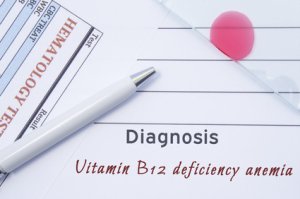afterLoad (456.47KB) (561μs)
afterInitialise (1.28MB) (10.03ms)
afterRoute (873.7KB) (4.57ms)
beforeRenderComponent com_tags (21.05KB) (297μs)
afterRenderComponent com_tags (1.31MB) (17.9ms)
afterDispatch (65.32KB) (1.59ms)
beforeRenderRawModule mod_articles_category (READ MORE...) (388.12KB) (4.34ms)
Before Access::preloadComponents (all components) (56.7KB) (433μs)
After Access::preloadComponents (all components) (107.42KB) (617μs)
Before Access::getAssetRules (id:8 name:com_content) (840B) (18μs)
After Access::getAssetRules (id:8 name:com_content) (7.05KB) (39μs)
afterRenderRawModule mod_articles_category (READ MORE...) (5.7KB) (49.09ms)
beforeRenderRawModule mod_tags_popular (Search) (4.81KB) (26μs)
afterRenderRawModule mod_tags_popular (Search) (1.8KB) (59.51ms)
beforeRenderRawModule mod_custom (Remember to download Heart Healthy Seniors) (816B) (27μs)
afterRenderRawModule mod_custom (Remember to download Heart Healthy Seniors) (4.86KB) (205μs)
beforeRenderRawModule mod_custom (Get additionel and more detailed knowledge ) (752B) (13μs)
afterRenderRawModule mod_custom (Get additionel and more detailed knowledge ) (1.67KB) (27μs)
beforeRenderRawModule mod_custom (BOOST YOUR IMMUNE DEFENSE) (608B) (10μs)
afterRenderRawModule mod_custom (BOOST YOUR IMMUNE DEFENSE) (928B) (21μs)
beforeRenderRawModule mod_custom (Are you taking supplements) (736B) (9μs)
afterRenderRawModule mod_custom (Are you taking supplements) (1.03KB) (19μs)
beforeRenderRawModule mod_custom (Antiaging) (720B) (9μs)
afterRenderRawModule mod_custom (Antiaging) (1.02KB) (18μs)
beforeRenderRawModule mod_custom (Exercise) (720B) (9μs)
afterRenderRawModule mod_custom (Exercise) (1.02KB) (17μs)
beforeRenderRawModule mod_custom (Check this before you buy a Q10 product) (752B) (9μs)
afterRenderRawModule mod_custom (Check this before you buy a Q10 product) (944B) (18μs)
beforeRenderRawModule mod_custom (Chronic fatigue tied Alan to his bed but Q10 capsules saved him:) (245.53KB) (8.69ms)
afterRenderRawModule mod_custom (Chronic fatigue tied Alan to his bed but Q10 capsules saved him:) (960B) (108μs)
beforeRenderModule mod_custom (Chronic fatigue tied Alan to his bed but Q10 capsules saved him:) (768B) (5μs)
afterRenderModule mod_custom (Chronic fatigue tied Alan to his bed but Q10 capsules saved him:) (1.3KB) (63μs)
beforeRenderRawModule mod_custom (Cholesterol-lowering without side effects:) (368B) (13μs)
afterRenderRawModule mod_custom (Cholesterol-lowering without side effects:) (2.19KB) (24μs)
beforeRenderModule mod_custom (Cholesterol-lowering without side effects:) (752B) (2μs)
afterRenderModule mod_custom (Cholesterol-lowering without side effects:) (1.28KB) (30μs)
beforeRenderModule mod_articles_category (READ MORE...) (21.43KB) (1.58ms)
afterRenderModule mod_articles_category (READ MORE...) (1.25KB) (52μs)
beforeRenderModule mod_tags_popular (Search) (5.17KB) (14μs)
afterRenderModule mod_tags_popular (Search) (1.27KB) (26μs)
beforeRenderModule mod_custom (Remember to download Heart Healthy Seniors) (1.17KB) (11μs)
afterRenderModule mod_custom (Remember to download Heart Healthy Seniors) (1.3KB) (22μs)
beforeRenderModule mod_custom (Get additionel and more detailed knowledge ) (368B) (10μs)
afterRenderModule mod_custom (Get additionel and more detailed knowledge ) (1.3KB) (20μs)
beforeRenderModule mod_custom (BOOST YOUR IMMUNE DEFENSE) (224B) (9μs)
afterRenderModule mod_custom (BOOST YOUR IMMUNE DEFENSE) (1.28KB) (20μs)
beforeRenderModule mod_custom (Are you taking supplements) (352B) (9μs)
afterRenderModule mod_custom (Are you taking supplements) (1.28KB) (21μs)
beforeRenderModule mod_custom (Antiaging) (336B) (8μs)
afterRenderModule mod_custom (Antiaging) (1.27KB) (20μs)
beforeRenderModule mod_custom (Exercise) (336B) (9μs)
afterRenderModule mod_custom (Exercise) (1.25KB) (20μs)
beforeRenderModule mod_custom (Check this before you buy a Q10 product) (352B) (8μs)
afterRenderModule mod_custom (Check this before you buy a Q10 product) (1.28KB) (19μs)
beforeRenderRawModule mod_menu (Main menu-US) (20.94KB) (532μs)
afterRenderRawModule mod_menu (Main menu-US) (217.91KB) (5.45ms)
beforeRenderModule mod_menu (Main menu-US) (720B) (5μs)
afterRenderModule mod_menu (Main menu-US) (4.36KB) (58μs)
beforeRenderRawModule mod_languages (Sprogskift) (3.44KB) (32μs)
afterRenderRawModule mod_languages (Sprogskift) (26.82KB) (3.1ms)
beforeRenderModule mod_languages (Sprogskift) (720B) (6μs)
afterRenderModule mod_languages (Sprogskift) (5.31KB) (21μs)
beforeRenderRawModule mod_finder () (6.34KB) (10μs)
afterRenderRawModule mod_finder () (150.16KB) (5.63ms)
beforeRenderModule mod_finder () (704B) (5μs)
afterRenderModule mod_finder () (5.79KB) (34μs)
beforeRenderRawModule mod_custom () (6.62KB) (140μs)
afterRenderRawModule mod_custom () (22.67KB) (1.59ms)
beforeRenderModule mod_custom () (704B) (6μs)
afterRenderModule mod_custom () (1.23KB) (52μs)
beforeRenderRawModule mod_menu (Main menu-US) (5.07KB) (106μs)
afterRenderRawModule mod_menu (Main menu-US) (5.8KB) (620μs)
beforeRenderModule mod_menu (Main menu-US) (720B) (3μs)
afterRenderModule mod_menu (Main menu-US) (1.25KB) (41μs)
beforeRenderRawModule mod_languages (Sprogskift Mobil) (912B) (16μs)
afterRenderRawModule mod_languages (Sprogskift Mobil) (3.89KB) (4.72ms)
beforeRenderModule mod_languages (Sprogskift Mobil) (720B) (5μs)
afterRenderModule mod_languages (Sprogskift Mobil) (1.27KB) (34μs)
beforeRenderRawModule mod_finder () (2.3KB) (11μs)
afterRenderRawModule mod_finder () (6.29KB) (550μs)
beforeRenderModule mod_finder () (704B) (5μs)
afterRenderModule mod_finder () (1.23KB) (44μs)
beforeRenderRawModule mod_custom () (8.66KB) (177μs)
afterRenderRawModule mod_custom () (904B) (132μs)
beforeRenderModule mod_custom () (704B) (2μs)
afterRenderModule mod_custom () (2.43KB) (25μs)
beforeRenderRawModule mod_custom () (688B) (78μs)
afterRenderRawModule mod_custom () (896B) (94μs)
beforeRenderModule mod_custom () (704B) (2μs)
afterRenderModule mod_custom () (2.71KB) (21μs)
afterRender (225.62KB) (11.14ms)
| 1 x afterRenderRawModule mod_tags_popular (Search) (1.8KB) (30.31%) | 59.51ms |
| 1 x afterRenderRawModule mod_articles_category (READ MORE...) (5.7KB) (25%) | 49.09ms |
| 1 x afterRenderComponent com_tags (1.31MB) (9.12%) | 17.90ms |
| 1 x afterRender (225.62KB) (5.67%) | 11.14ms |
| 1 x afterInitialise (1.28MB) (5.11%) | 10.03ms |
| 1 x beforeRenderRawModule mod_custom (Chronic fatigue tied Alan to his bed but Q10 capsules saved him:) (245.53KB) (4.43%) | 8.69ms |
| 1 x afterRenderRawModule mod_finder () (150.16KB) (2.87%) | 5.63ms |
| 1 x afterRenderRawModule mod_menu (Main menu-US) (217.91KB) (2.78%) | 5.45ms |
| 1 x afterRenderRawModule mod_languages (Sprogskift Mobil) (3.89KB) (2.4%) | 4.72ms |
| 1 x afterRoute (873.7KB) (2.33%) | 4.57ms |
| 1 x beforeRenderRawModule mod_articles_category (READ MORE...) (388.12KB) (2.21%) | 4.34ms |
| 1 x afterRenderRawModule mod_languages (Sprogskift) (26.82KB) (1.58%) | 3.10ms |
| 1 x afterDispatch (65.32KB) (0.81%) | 1.59ms |
| 1 x afterRenderRawModule mod_custom () (22.67KB) (0.81%) | 1.59ms |
| 1 x beforeRenderModule mod_articles_category (READ MORE...) (21.43KB) (0.8%) | 1.58ms |
| 1 x afterRenderRawModule mod_menu (Main menu-US) (5.8KB) (0.32%) | 620μs |
| 1 x After Access::preloadComponents (all components) (107.42KB) (0.31%) | 617μs |
| 1 x afterLoad (456.47KB) (0.29%) | 561μs |
| 1 x afterRenderRawModule mod_finder () (6.29KB) (0.28%) | 550μs |
| 1 x beforeRenderRawModule mod_menu (Main menu-US) (20.94KB) (0.27%) | 532μs |
| 1 x Before Access::preloadComponents (all components) (56.7KB) (0.22%) | 433μs |
| 1 x beforeRenderComponent com_tags (21.05KB) (0.15%) | 297μs |
| 1 x afterRenderRawModule mod_custom (Remember to download Heart Healthy Seniors) (4.86KB) (0.1%) | 205μs |
| 1 x beforeRenderRawModule mod_custom () (8.66KB) (0.09%) | 177μs |
| 1 x beforeRenderRawModule mod_custom () (6.62KB) (0.07%) | 140μs |
| 1 x afterRenderRawModule mod_custom () (904B) (0.07%) | 132μs |
| 1 x afterRenderRawModule mod_custom (Chronic fatigue tied Alan to his bed but Q10 capsules saved him:) (960B) (0.06%) | 108μs |
| 1 x beforeRenderRawModule mod_menu (Main menu-US) (5.07KB) (0.05%) | 106μs |
| 1 x afterRenderRawModule mod_custom () (896B) (0.05%) | 94μs |
| 1 x beforeRenderRawModule mod_custom () (688B) (0.04%) | 78μs |
| 1 x afterRenderModule mod_custom (Chronic fatigue tied Alan to his bed but Q10 capsules saved him:) (1.3KB) (0.03%) | 63μs |
| 1 x afterRenderModule mod_menu (Main menu-US) (4.36KB) (0.03%) | 58μs |
| 1 x afterRenderModule mod_articles_category (READ MORE...) (1.25KB) (0.03%) | 52μs |
| 1 x afterRenderModule mod_custom () (1.23KB) (0.03%) | 52μs |
| 1 x afterRenderModule mod_finder () (1.23KB) (0.02%) | 44μs |
| 1 x afterRenderModule mod_menu (Main menu-US) (1.25KB) (0.02%) | 41μs |
| 1 x After Access::getAssetRules (id:8 name:com_content) (7.05KB) (0.02%) | 39μs |
| 1 x afterRenderModule mod_languages (Sprogskift Mobil) (1.27KB) (0.02%) | 34μs |
| 1 x afterRenderModule mod_finder () (5.79KB) (0.02%) | 34μs |
| 1 x beforeRenderRawModule mod_languages (Sprogskift) (3.44KB) (0.02%) | 32μs |
| 1 x afterRenderModule mod_custom (Cholesterol-lowering without side effects:) (1.28KB) (0.02%) | 30μs |
| 1 x beforeRenderRawModule mod_custom (Remember to download Heart Healthy Seniors) (816B) (0.01%) | 27μs |
| 1 x afterRenderRawModule mod_custom (Get additionel and more detailed knowledge ) (1.67KB) (0.01%) | 27μs |
| 1 x beforeRenderRawModule mod_tags_popular (Search) (4.81KB) (0.01%) | 26μs |
| 1 x afterRenderModule mod_tags_popular (Search) (1.27KB) (0.01%) | 26μs |
| 1 x afterRenderModule mod_custom () (2.43KB) (0.01%) | 25μs |
| 1 x afterRenderRawModule mod_custom (Cholesterol-lowering without side effects:) (2.19KB) (0.01%) | 24μs |
| 1 x afterRenderModule mod_custom (Remember to download Heart Healthy Seniors) (1.3KB) (0.01%) | 22μs |
| 1 x afterRenderModule mod_custom () (2.71KB) (0.01%) | 21μs |
| 1 x afterRenderRawModule mod_custom (BOOST YOUR IMMUNE DEFENSE) (928B) (0.01%) | 21μs |
| 1 x afterRenderModule mod_custom (Are you taking supplements) (1.28KB) (0.01%) | 21μs |
| 1 x afterRenderModule mod_languages (Sprogskift) (5.31KB) (0.01%) | 21μs |
| 1 x afterRenderModule mod_custom (Get additionel and more detailed knowledge ) (1.3KB) (0.01%) | 20μs |
| 1 x afterRenderModule mod_custom (BOOST YOUR IMMUNE DEFENSE) (1.28KB) (0.01%) | 20μs |
| 1 x afterRenderModule mod_custom (Exercise) (1.25KB) (0.01%) | 20μs |
| 1 x afterRenderModule mod_custom (Antiaging) (1.27KB) (0.01%) | 20μs |
| 1 x afterRenderRawModule mod_custom (Are you taking supplements) (1.03KB) (0.01%) | 19μs |
| 1 x afterRenderModule mod_custom (Check this before you buy a Q10 product) (1.28KB) (0.01%) | 19μs |
| 1 x Before Access::getAssetRules (id:8 name:com_content) (840B) (0.01%) | 18μs |
| 1 x afterRenderRawModule mod_custom (Antiaging) (1.02KB) (0.01%) | 18μs |
| 1 x afterRenderRawModule mod_custom (Check this before you buy a Q10 product) (944B) (0.01%) | 18μs |
| 1 x afterRenderRawModule mod_custom (Exercise) (1.02KB) (0.01%) | 17μs |
| 1 x beforeRenderRawModule mod_languages (Sprogskift Mobil) (912B) (0.01%) | 16μs |
| 1 x beforeRenderModule mod_tags_popular (Search) (5.17KB) (0.01%) | 14μs |
| 1 x beforeRenderRawModule mod_custom (Get additionel and more detailed knowledge ) (752B) (0.01%) | 13μs |
| 1 x beforeRenderRawModule mod_custom (Cholesterol-lowering without side effects:) (368B) (0.01%) | 13μs |
| 1 x beforeRenderModule mod_custom (Remember to download Heart Healthy Seniors) (1.17KB) (0.01%) | 11μs |
| 1 x beforeRenderRawModule mod_finder () (2.3KB) (0.01%) | 11μs |
| 1 x beforeRenderRawModule mod_custom (BOOST YOUR IMMUNE DEFENSE) (608B) (0.01%) | 10μs |
| 1 x beforeRenderModule mod_custom (Get additionel and more detailed knowledge ) (368B) (0.01%) | 10μs |
| 1 x beforeRenderRawModule mod_finder () (6.34KB) (0.01%) | 10μs |
| 2 x beforeRenderModule mod_finder () (704B) (0.01%) | 10μs |
| 3 x beforeRenderModule mod_custom () (704B) (0.01%) | 10μs |
| 1 x beforeRenderRawModule mod_custom (Are you taking supplements) (736B) (0%) | 9μs |
| 1 x beforeRenderRawModule mod_custom (Antiaging) (720B) (0%) | 9μs |
| 1 x beforeRenderRawModule mod_custom (Exercise) (720B) (0%) | 9μs |
| 1 x beforeRenderRawModule mod_custom (Check this before you buy a Q10 product) (752B) (0%) | 9μs |
| 1 x beforeRenderModule mod_custom (Are you taking supplements) (352B) (0%) | 9μs |
| 1 x beforeRenderModule mod_custom (Exercise) (336B) (0%) | 9μs |
| 1 x beforeRenderModule mod_custom (BOOST YOUR IMMUNE DEFENSE) (224B) (0%) | 9μs |
| 1 x beforeRenderModule mod_custom (Antiaging) (336B) (0%) | 8μs |
| 1 x beforeRenderModule mod_custom (Check this before you buy a Q10 product) (352B) (0%) | 8μs |
| 2 x beforeRenderModule mod_menu (Main menu-US) (720B) (0%) | 8μs |
| 1 x beforeRenderModule mod_languages (Sprogskift) (720B) (0%) | 6μs |
| 1 x beforeRenderModule mod_custom (Chronic fatigue tied Alan to his bed but Q10 capsules saved him:) (768B) (0%) | 5μs |
| 1 x beforeRenderModule mod_languages (Sprogskift Mobil) (720B) (0%) | 5μs |
| 1 x beforeRenderModule mod_custom (Cholesterol-lowering without side effects:) (752B) (0%) | 2μs |









 It is common knowledge that too much sun exposure can cause skin cancer. On the other hand, lack of sunlight is also a problem. If you expose yourself to plenty of sunlight during your childhood years it lowers your risk of developing multiple sclerosis later in life, according to a study from University of California and Australian National University. The reason why sunlight protects against multiple sclerosis and a number of other illnesses is that the sun is our most important source of vitamin D, a nutrient with multiple functions in the body. Therefore, it is essential to get plenty of sun as long as you avoid getting a sunburn. For people living at northern latitudes, it’s important to follow the official guidelines for vitamin D supplementation to make sure that we have enough vitamin D in our body at all times.
It is common knowledge that too much sun exposure can cause skin cancer. On the other hand, lack of sunlight is also a problem. If you expose yourself to plenty of sunlight during your childhood years it lowers your risk of developing multiple sclerosis later in life, according to a study from University of California and Australian National University. The reason why sunlight protects against multiple sclerosis and a number of other illnesses is that the sun is our most important source of vitamin D, a nutrient with multiple functions in the body. Therefore, it is essential to get plenty of sun as long as you avoid getting a sunburn. For people living at northern latitudes, it’s important to follow the official guidelines for vitamin D supplementation to make sure that we have enough vitamin D in our body at all times. It came as good news for vegetarians, vegans and sclerosis sufferers when Danish health authorities allowed strong vitamin B12 preparations on the market some years ago. It was also positive that the active methylated form of vitamin B12 was added to the list of approved ingredients.
It came as good news for vegetarians, vegans and sclerosis sufferers when Danish health authorities allowed strong vitamin B12 preparations on the market some years ago. It was also positive that the active methylated form of vitamin B12 was added to the list of approved ingredients. It is no coincidence that sclerosis is more prevalent at the northern latitudes. A major factor is lack of vitamin D, a nutrient that we only synthesize from sunlight during the summer. A new study published in the scientific journal Neurology shows that the risk increases even more if people are overweight, and children are particularly vulnerable. As part of the strategy for preventing sclerosis, we must pay more attention to weight management and make sure to get plenty of vitamin D all year round and throughout life. Furthermore, various campaigns that warn against sun exposure and recommend the use of sunscreen should at the same time advise children and adults how to get enough vitamin D from other sources.
It is no coincidence that sclerosis is more prevalent at the northern latitudes. A major factor is lack of vitamin D, a nutrient that we only synthesize from sunlight during the summer. A new study published in the scientific journal Neurology shows that the risk increases even more if people are overweight, and children are particularly vulnerable. As part of the strategy for preventing sclerosis, we must pay more attention to weight management and make sure to get plenty of vitamin D all year round and throughout life. Furthermore, various campaigns that warn against sun exposure and recommend the use of sunscreen should at the same time advise children and adults how to get enough vitamin D from other sources. "After about one week of taking the Q10 supplement I could feel a huge difference," says 23-year old Alan Piccini, who has been suffering from extreme fatigue and muscle aches ever since he was a child.
"After about one week of taking the Q10 supplement I could feel a huge difference," says 23-year old Alan Piccini, who has been suffering from extreme fatigue and muscle aches ever since he was a child. “Taking capsules with co-enzyme Q10 has freed me of the severe side effects of my cholesterol lowering medicine,” Mrs Franken explains.
“Taking capsules with co-enzyme Q10 has freed me of the severe side effects of my cholesterol lowering medicine,” Mrs Franken explains.